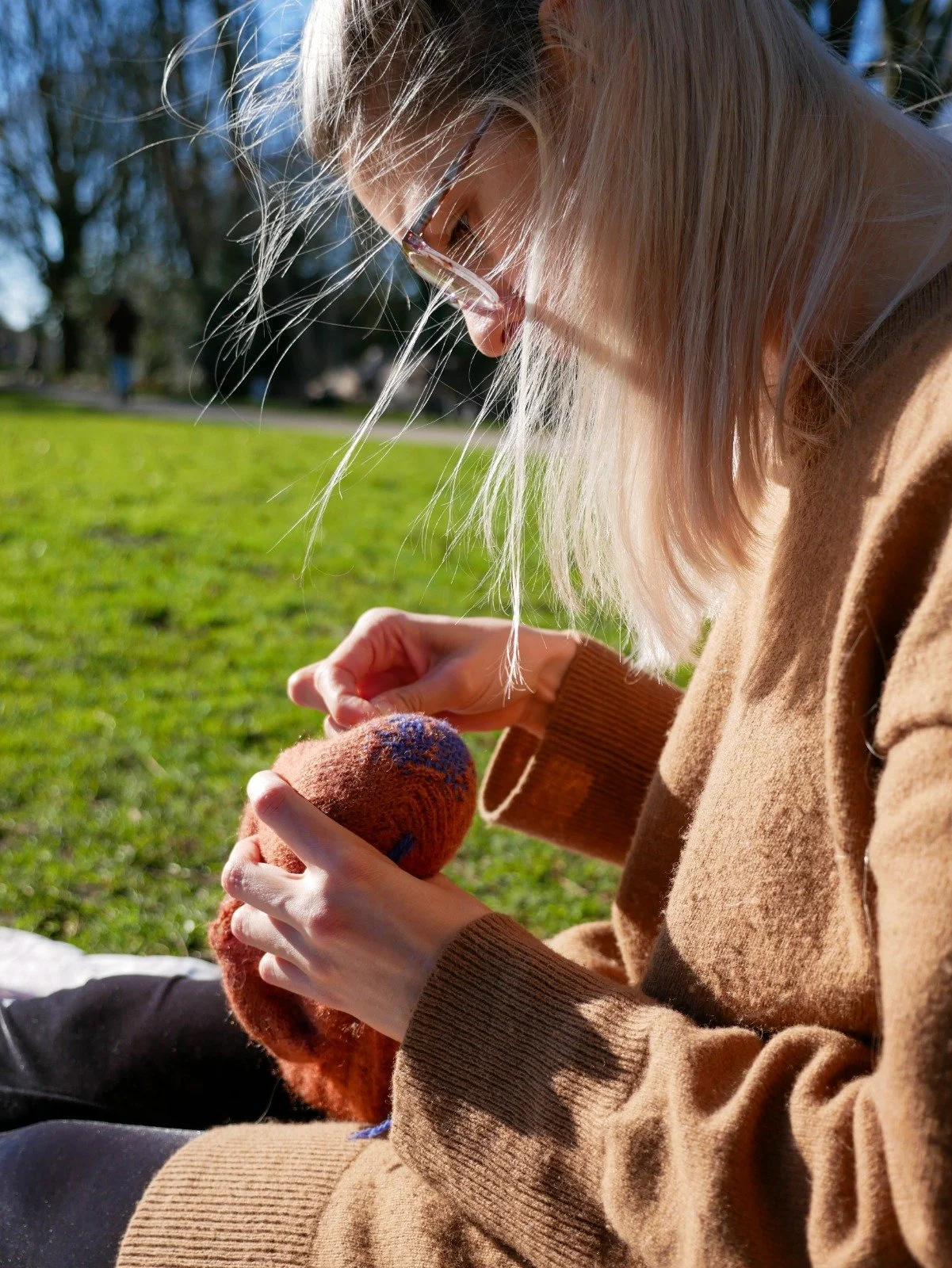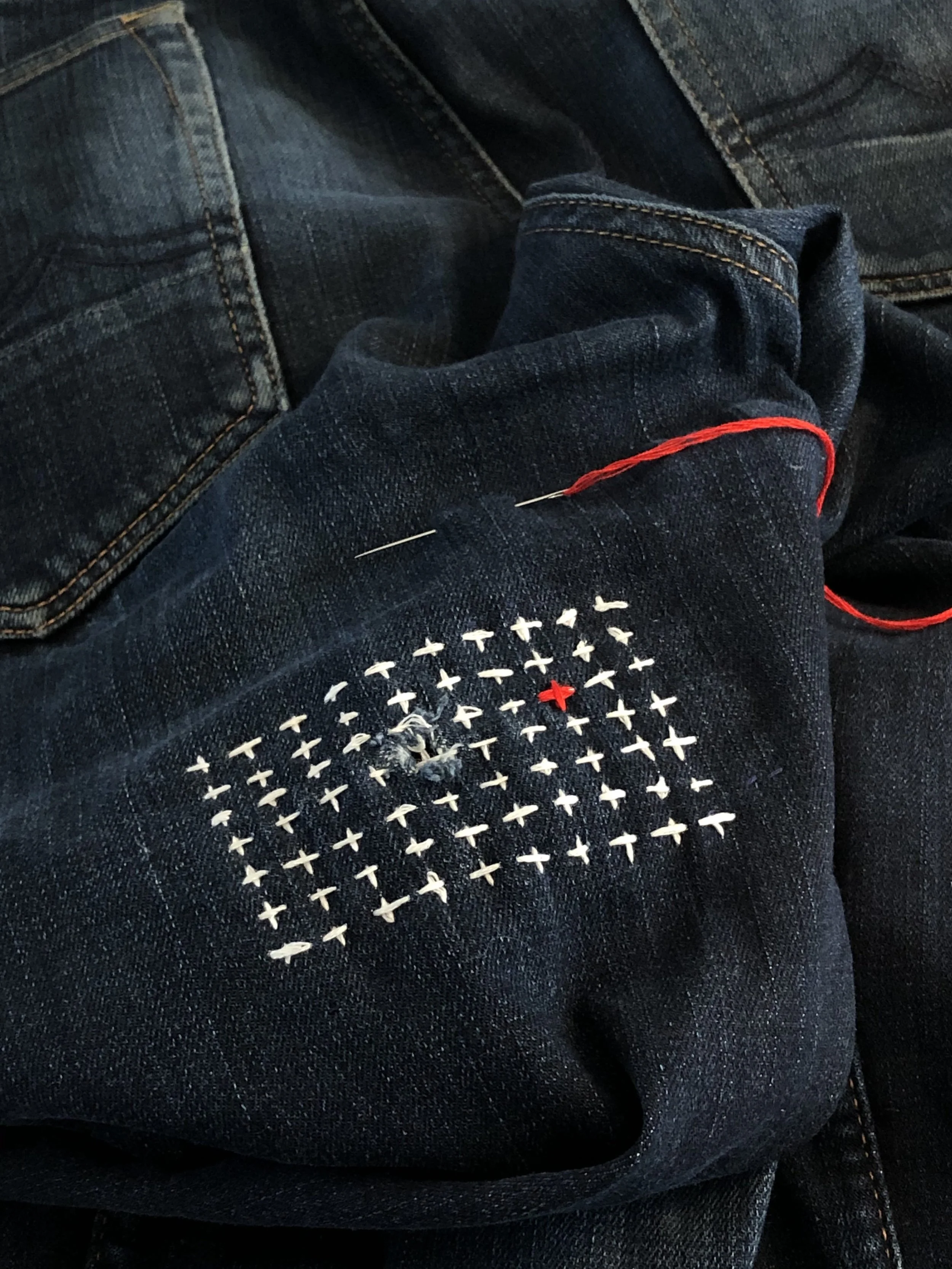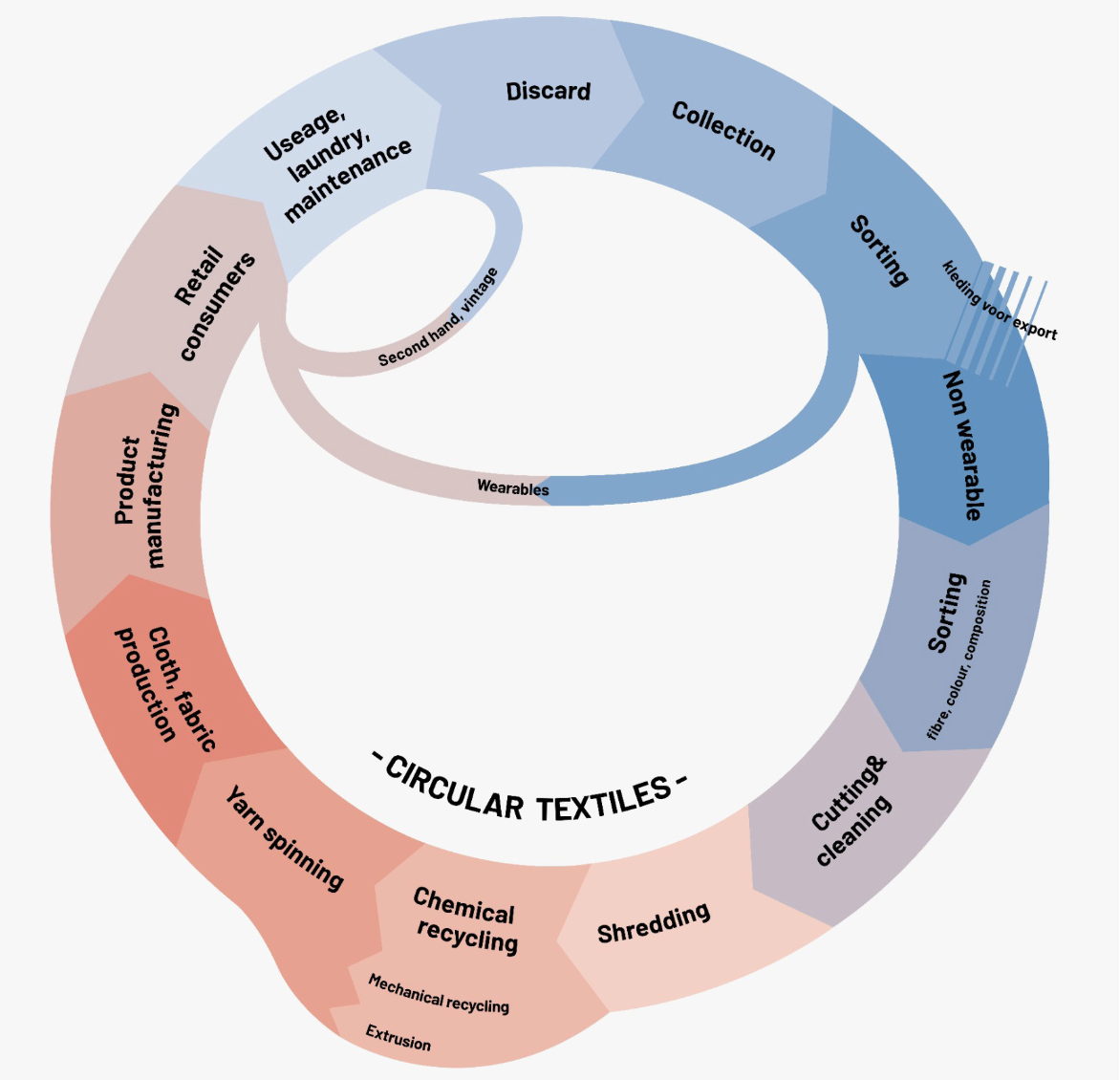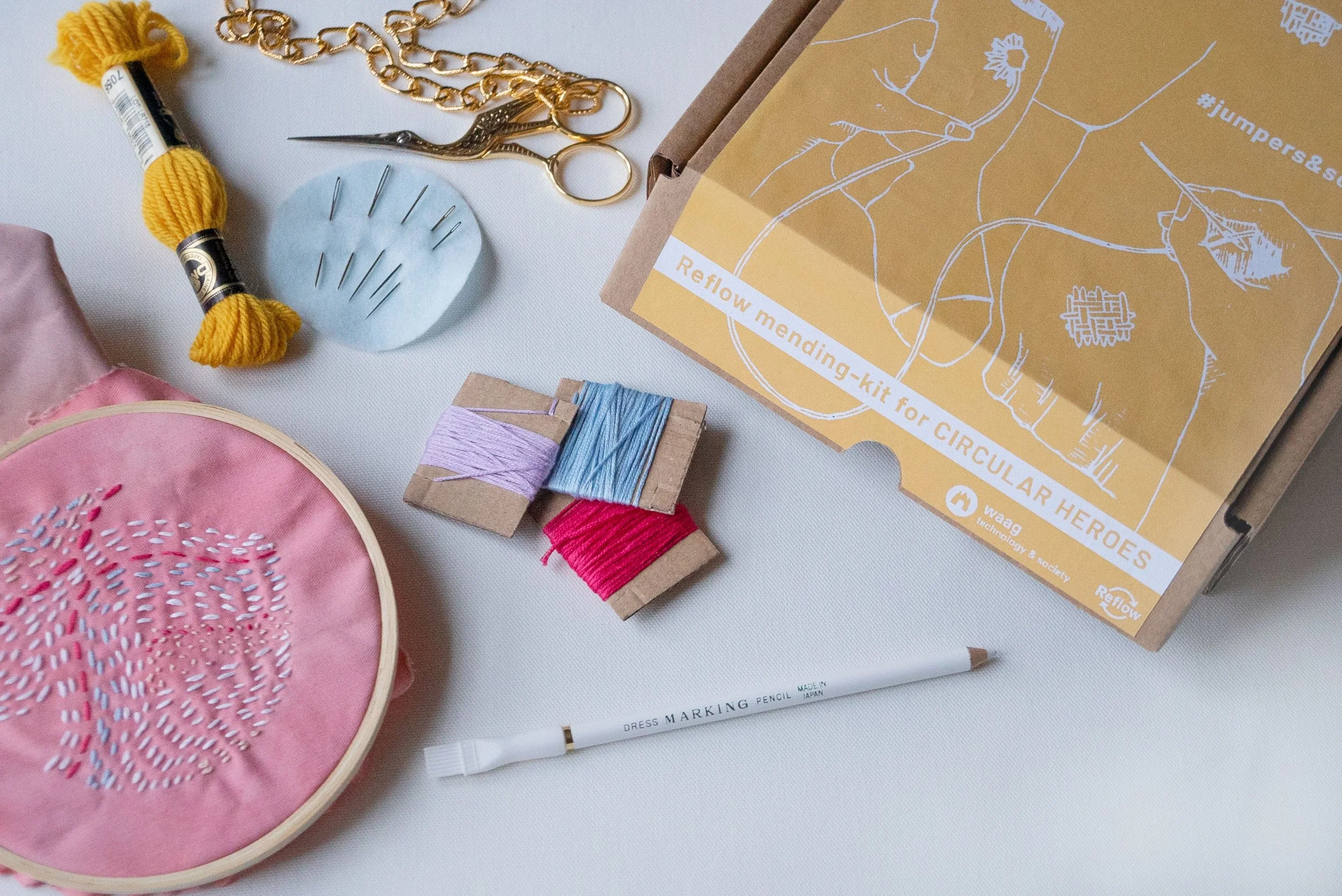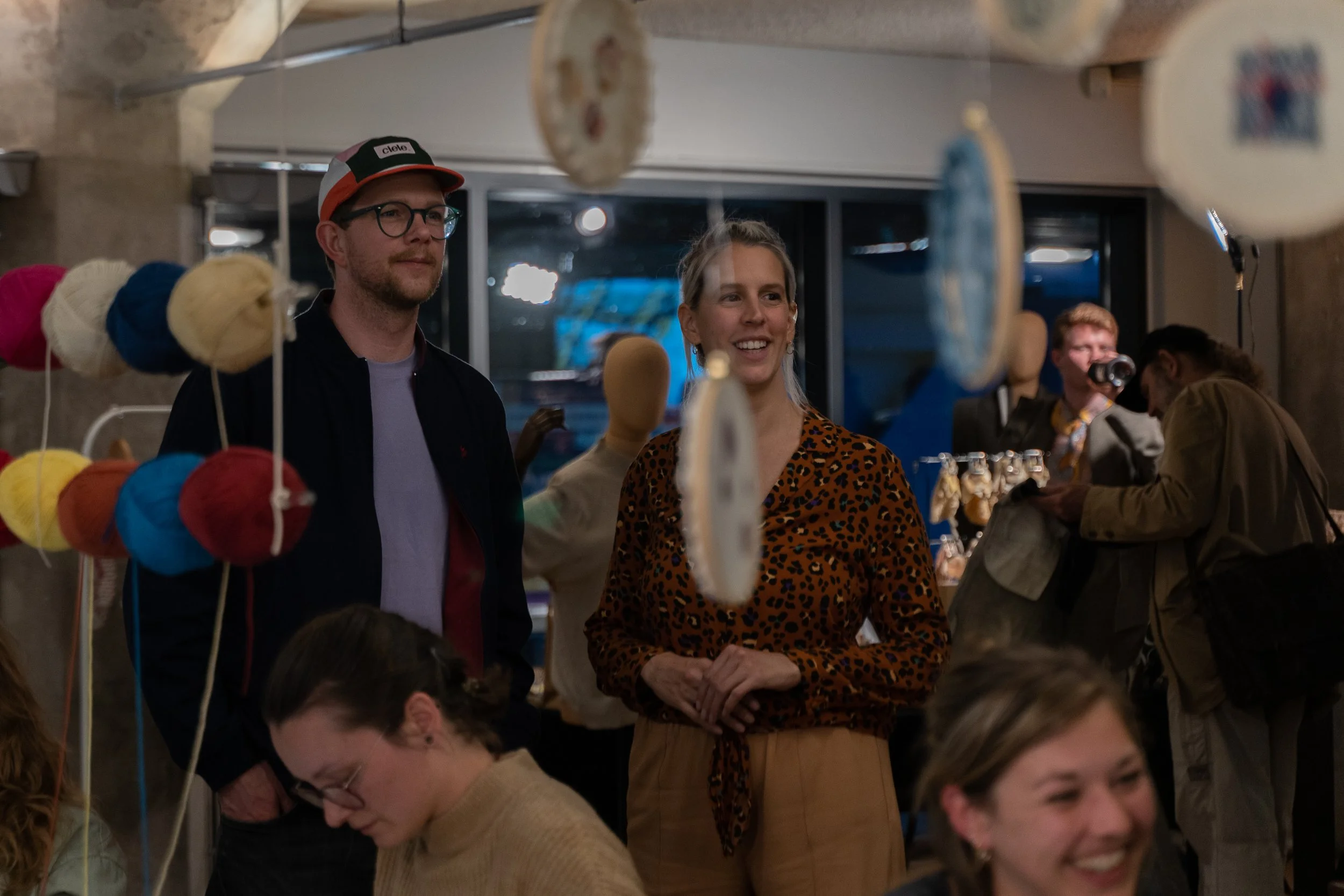Reflow
Amsterdam
2020-2021
Project Overview
Reflow, a 4-year project funded by the European Union’s Horizon 2020 programme, sought to enhance circularity in six European cities, including Amsterdam as a pilot city for textiles.
How can the development of circular and regenerative cities be facilitated through active citizen involvement and systemic changes to rethink the current approach to material flows in urban environments?
As a member of the Amsterdam Reflow team at Waag’s TextileLab Amsterdam, our primary focus was to evaluate the circularity of textiles used within the city and outline a potential roadmap for the future. Throughout the project, the team developed the “Circular Textile Wheel,” an infographic outlining the 16 stages of circular textiles. Given the challenge of recycling garments and their lack of biodegradability, extending the lifespan of clothing emerges as a key sustainable choice.
Circular Textile Wheel by Amsterdam pilot Reflow team
Circular Economy
•
Upcycling
•
Repair & Reuse
•
DIY
•
Circular Economy • Upcycling • Repair & Reuse • DIY •
Designing for Citizen Engagement
During the contextual research phase, it became clear that citizen engagement was essential to achieving the desired circular transition. We focused on reaching people motivated to help co-create a city that is environmentally, socially, and economically vibrant. While repairing broken items was once a common and essential household practice, shifting consumer habits - driven by the low cost and availability of new clothing - have made replacement easier and more common than repair.
As part of Amsterdam’s pilot within the project, I was responsible for designing and facilitating the workshops. To empower citizens as “circular heroes” and extend the life of their garments, we developed the campaign “Don’t Let Your Textiles Go to Waste” — promoting actions like reusing, repairing, rethinking, and revaluing our wardrobes.
Originally planned as in-person community events, the campaign quickly adapted to a hybrid model due to the pandemic. This shift became an opportunity to reach broader audiences. I developed and distributed workshop kits containing all necessary materials, hosted live online repair demonstrations, and produced recorded tutorial videos.
To support ongoing learning, I also compiled a comprehensive handbook — all of which were made publicly accessible through a dedicated Instructables page hosted on Waag’s website, significantly expanding the campaign’s reach and impact.
Want to learn how to repair your clothes?
Watch the recorded tutorials and access the full handbook, toolkits, and step-by-step repair guides on the Instructables page hosted by Waag.
Whether you’re just getting started or want to organize your own repair workshop, these resources are open to all.
Want to learn how to repair your clothes?
Watch the recorded tutorials and access the full handbook, toolkits, and step-by-step repair guides on the Instructables page hosted by Waag.
Whether you’re just getting started or want to organize your own repair workshop, these resources are open to all.
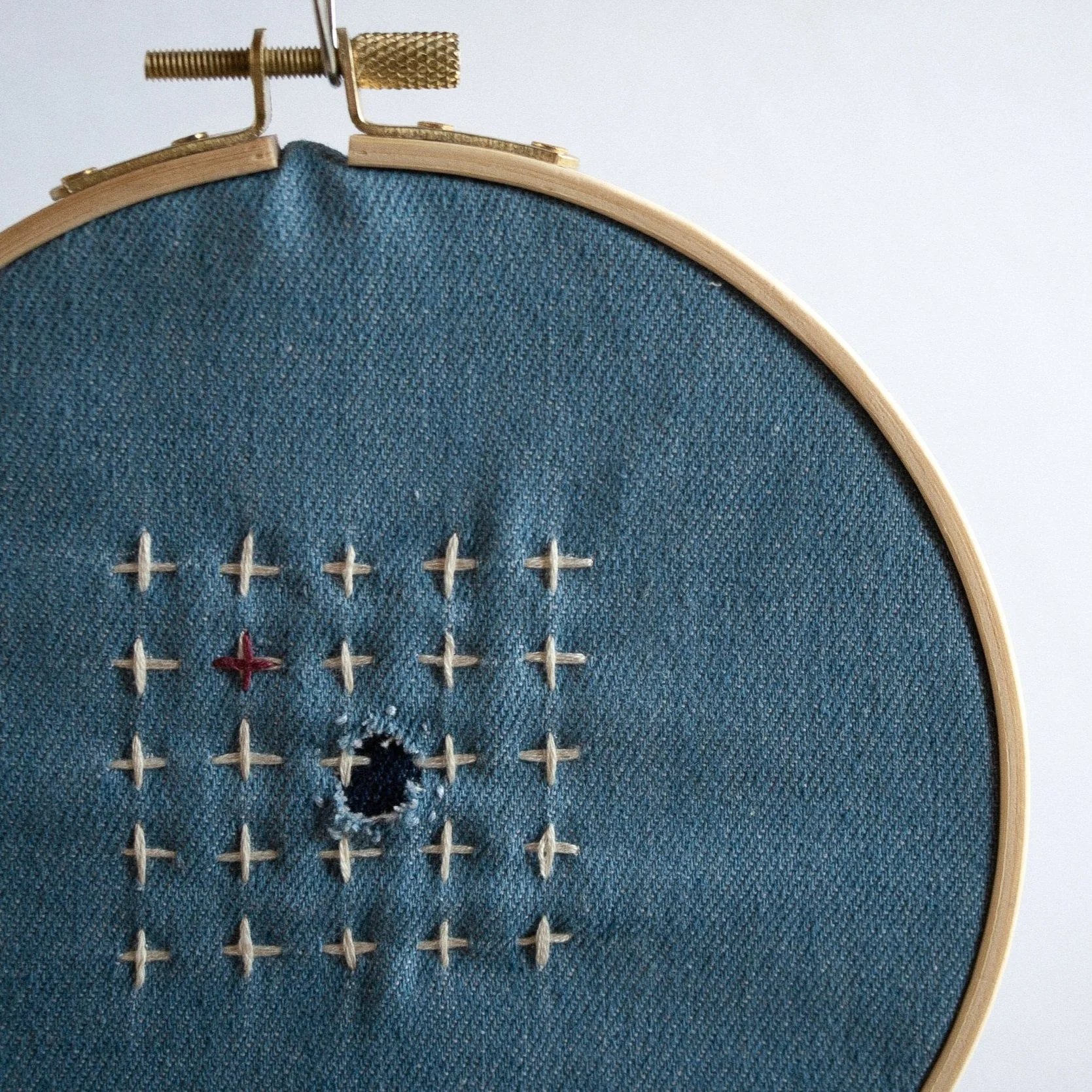
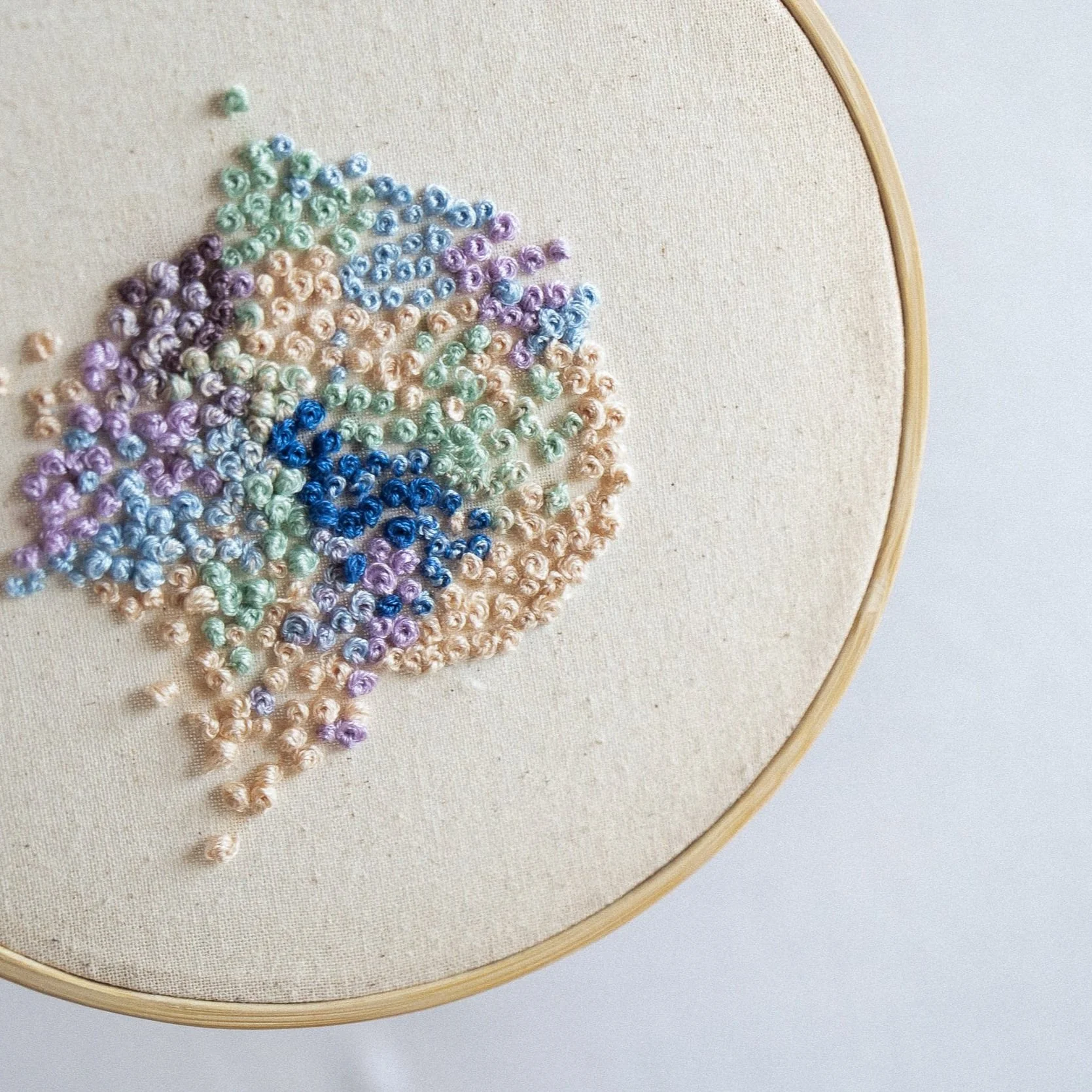
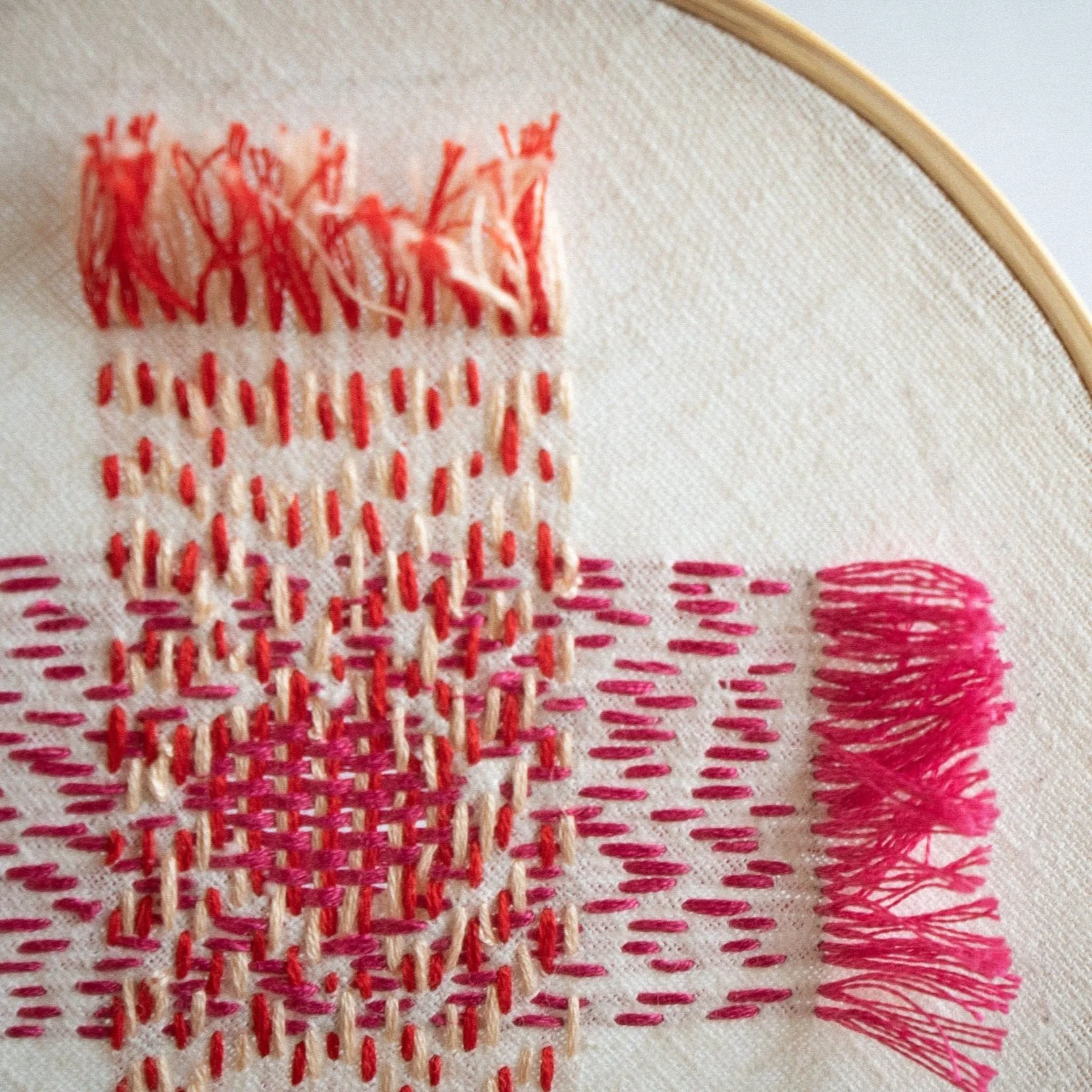
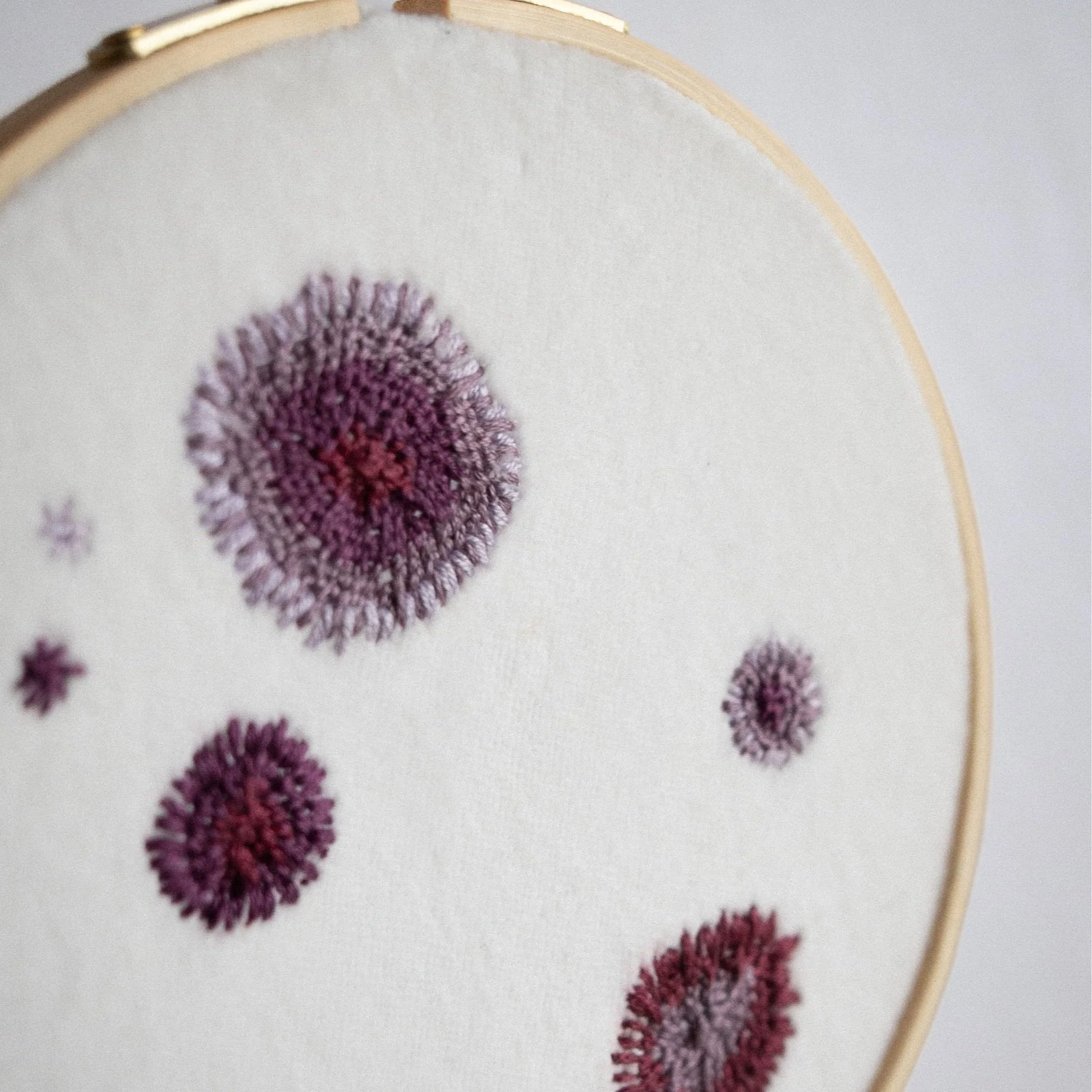
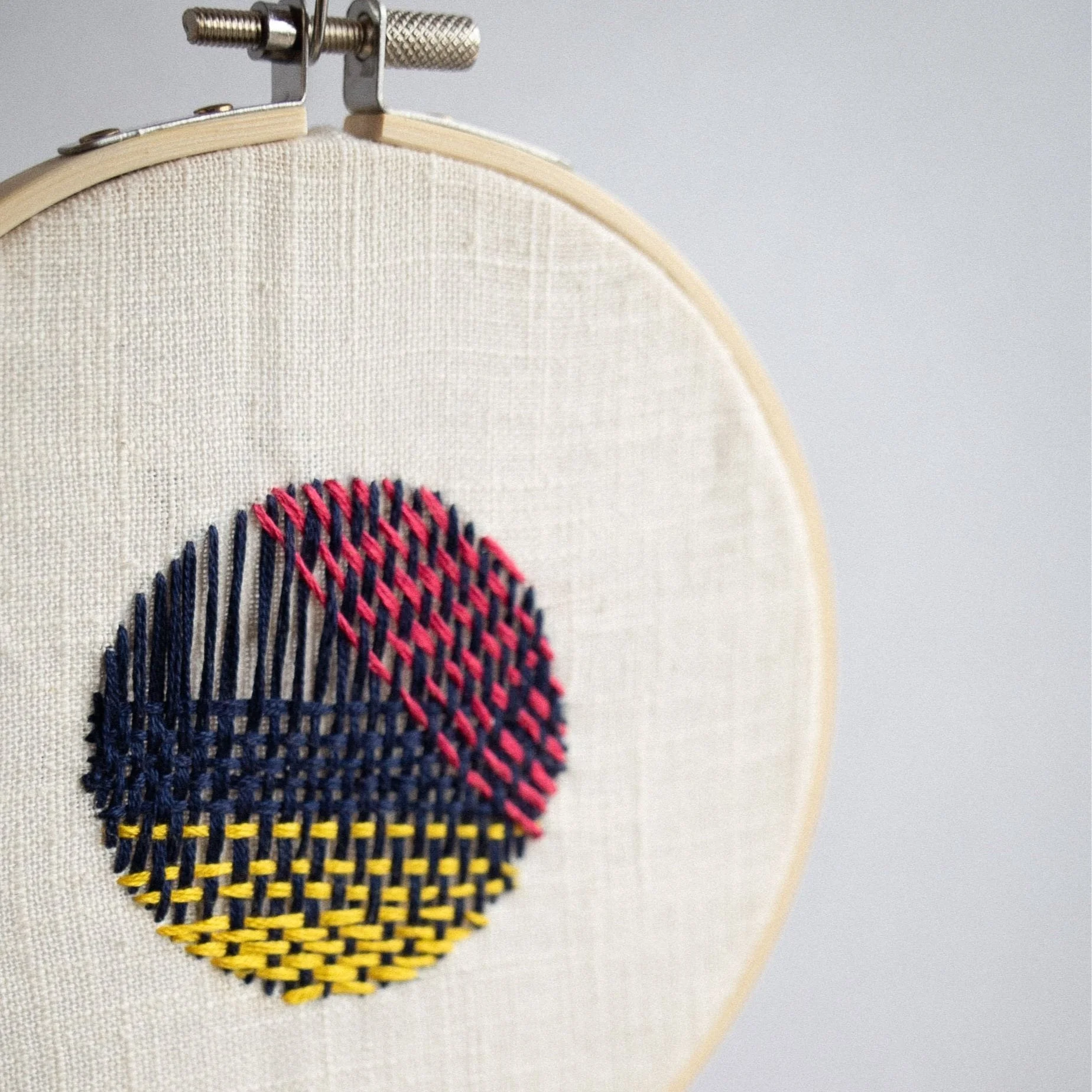
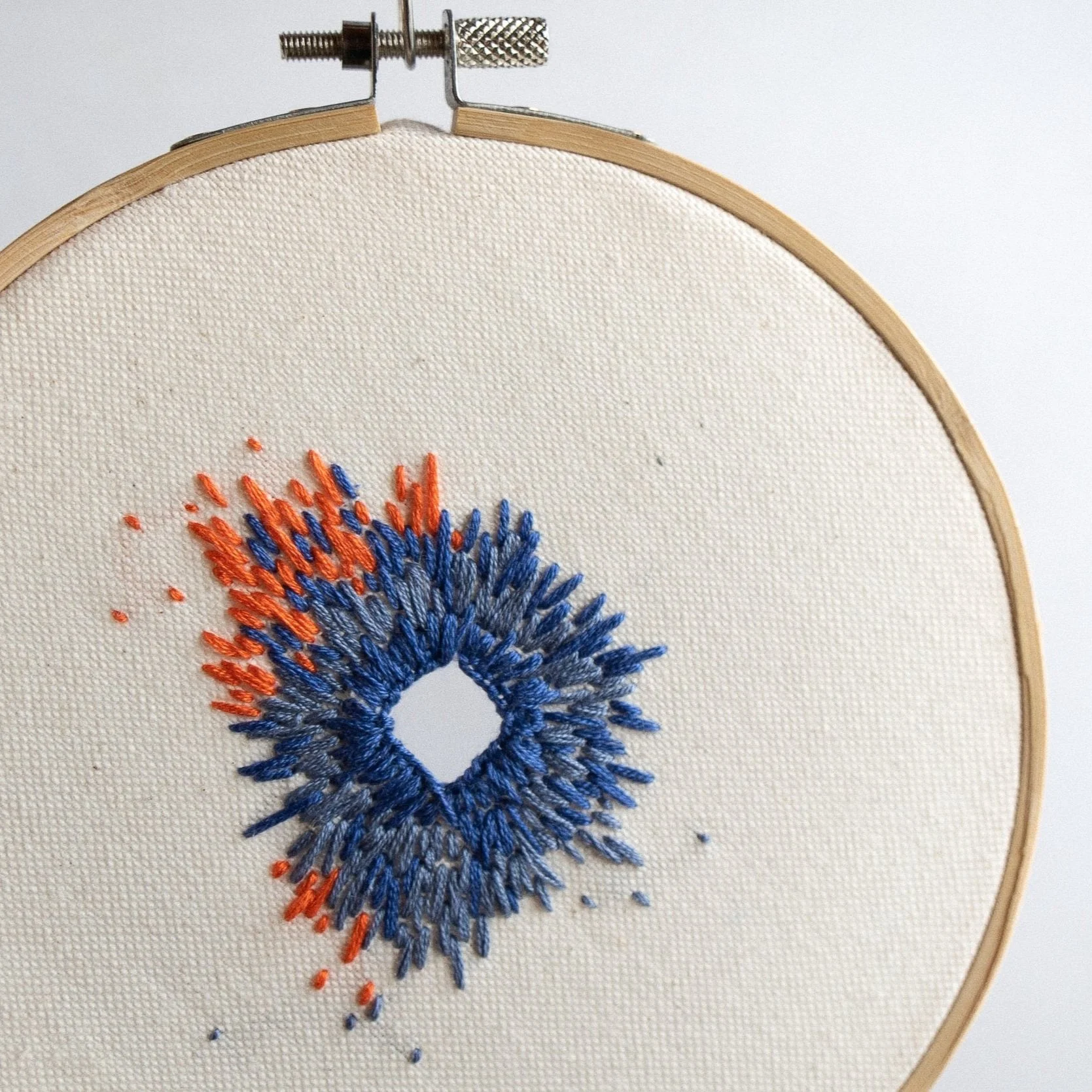
Reflow Circular Textiles Festival @Pakhuis de Zwijger April 2022
Special Mentions & Credits
Photos by Beatriz Sandini
Graphic design handbooks pdf by Laurie Skelton
More information on the project at the Reflow website. The Amsterdam pilot partners: Pakhuis de Zwijger, Metabolic, Municipality of Amsterdam, BMA-Techne and Waag
